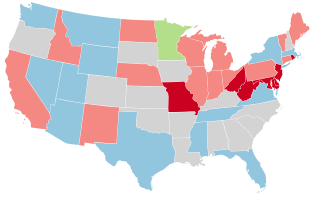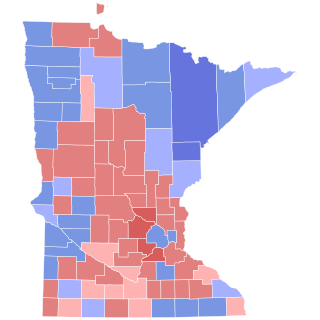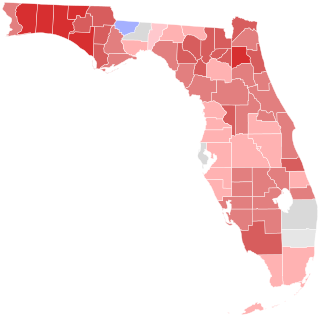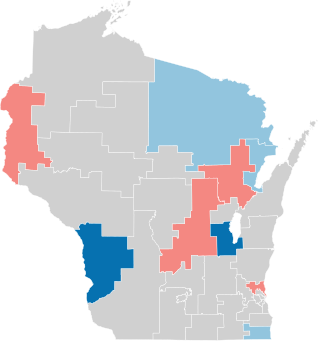
Dean Malcolm Barkley is an American attorney and politician who briefly served as a United States Senator from Minnesota from 2002 to 2003 as a member of the Independence Party of Minnesota. The founder and chair of the Minnesota Reform Party, he was the chairman of Jesse Ventura's successful upset bid for governor of Minnesota in 1998. Ventura subsequently appointed him director of the state's Office of Strategic and Long Range Planning. After Senator Paul Wellstone died in a plane crash just weeks before the 2002 election, Ventura appointed Barkley to fill Wellstone's Senate seat. His brief tenure ended when Republican Norm Coleman was elected and sworn in to fill the seat.
Third party is a term used in the United States for American political parties other than the two dominant parties, currently the Republican and Democratic parties. Sometimes the phrase "minor party" is used instead of "third party".

The 2010 United States Senate elections were held on November 2, 2010, from among the United States Senate's 100 seats. A special election was held on January 19, 2010, for a mid-term vacancy in Massachusetts. Thirty-four of the November elections were for six-year terms to the Senate's Class 3, while other three were special elections to finish incomplete terms. Those 37 November elections featured 19 incumbent Democrats and 18 incumbent Republicans.

The 1954 United States Senate elections was a midterm election in the first term of Dwight D. Eisenhower's presidency. The 32 Senate seats of Class 2 were contested in regular elections, and six special elections were held to fill vacancies. Eisenhower's Republican party lost a net of two seats to the Democratic opposition. This small change was just enough to give Democrats control of the chamber with the support of an Independent who caucused with them.

The 1946 United States Senate elections were held November 5, 1946, in the middle of Democratic President Harry S. Truman's first term after Roosevelt's passing. The 32 seats of Class 1 were contested in regular elections, and four special elections were held to fill vacancies. The Republicans took control of the Senate by picking up twelve seats, mostly from the Democrats. This was the first time since 1932 that the Republicans had held the Senate, recovering from a low of 16 seats following the 1936 Senate elections.

The 1944 United States Senate elections coincided with the re-election of Franklin D. Roosevelt to his fourth term as president. The 32 seats of Class 3 were contested in regular elections, and three special elections were held to fill vacancies.

The 1928 United States Senate elections were elections that coincided with the presidential election of Republican Herbert Hoover. The 32 seats of Class 1 were contested in regular elections, and special elections were held to fill vacancies. The strong economy helped the Republicans to gain seven seats from the Democrats.
An independent or non-partisan politician is a politician not affiliated with any political party or bureaucratic association. There are numerous reasons why someone may stand for office as an independent.

The 2006 United States Senate election in Arizona was held November 7, 2006. The primary elections were held September 12. Incumbent Republican Jon Kyl won re-election to a third term.

The 2002 United States Senate election in Minnesota took place on November 5, 2002. Incumbent Democratic U.S. Senator Paul Wellstone was running for reelection to a third term, but died in a plane crash eleven days before the election. The Democratic–Farmer–Labor Party (DFL) chose former vice president and 1984 Presidential nominee Walter Mondale to replace Wellstone on the ballot. Mondale had previously held the seat from 1964 to 1976, resigning to assume the vice presidency. He narrowly lost to Republican Norm Coleman, the former Mayor of Saint Paul. The day before the election, Governor Jesse Ventura appointed the 1996 Independence Party candidate, Dean Barkley, to serve the remainder of Wellstone's term.

The 2010 United States Senate election in Florida took place on November 2, 2010, concurrently with other elections to the United States Senate in other states, as well as elections to the United States House of Representatives and various state and local elections.

The Independence Party of Minnesota, formerly the Reform Party of Minnesota, is a political party in the U.S. state of Minnesota. It was the party of former Minnesota governor Jesse Ventura when he left the Reform Party.

The 1992 United States elections elected state governors, the President of the United States, and members of the 103rd United States Congress. The election took place after the Soviet Union crumbled and the Cold War ended, as well as the redistricting that resulted from the 1990 Census. The Democratic Party won control of the presidency and maintained their control of both chambers of Congress. This is the first Democratic trifecta since the Republican victory in the 1980 elections and the last one during the 20th century.

Recall elections for nine Wisconsin state senators were held during the summer of 2011; one was held on July 19, and six on August 9, with two more held on August 16. Voters attempted to put 16 state senators up for recall, eight Democrats and eight Republicans, because of the budget bill proposed by Governor Scott Walker and circumstances surrounding it. Republicans targeted Democrats for leaving the state for three weeks to prevent the bill from receiving a vote, while Democrats targeted Republicans for voting to significantly limit public employee collective bargaining. Scholars could cite only three times in American history when more than one state legislator has been recalled at roughly the same time over the same issue.

The 2014 United States Senate special election in South Carolina took place on November 4, 2014, concurrently with the regular election for the other South Carolina Senate seat. The special-election Senate seat was formerly held by Republican Jim DeMint, who resigned on January 1, 2013, to become president of the Heritage Foundation.

The 2020 United States Senate elections were held on November 3, 2020, with the 33 class 2 seats of the Senate contested in regular elections. Of these, 21 were held by Republicans, and 12 by Democrats. The winners were elected to six-year terms from January 3, 2021, to January 3, 2027. Two special elections for seats held by Republicans were also held in conjunction with the general elections: one in Arizona, to fill the vacancy created by John McCain's death in 2018; and one in Georgia, following Johnny Isakson's resignation in 2019. These elections ran concurrently with the 2020 United States presidential election in which incumbent President Donald Trump lost to Democratic nominee Joe Biden.

The 2022 United States Senate elections were held on November 8, 2022, concurrently with the midterm elections at the federal, state and local level, including the 2022 U.S. House of Representatives elections. Regularly scheduled elections were held for 34 of the 100 seats in the U.S. Senate, the winners of which will serve six-year terms in the U.S. Congress from January 3, 2023, to January 3, 2029, starting with the 118th United States Congress. One special election was also held to complete an unexpired term ending January 3, 2027. While pundits considered the Republican Party a slight favorite to gain control of the Senate, the Democratic Party outperformed expectations and expanded the majority they had held since 2021.

Elections were held in the U.S. state of Arizona on November 3, 2020, as part of the 2020 General Election. Arizona voters chose 11 electors to represent them in the Electoral College via a popular vote. Three seats on the Arizona Corporation Commission were up for election, as were all nine of Arizona seats in the United States House of Representatives, and one of its seats in the United States Senate. Primary elections were held in August 2020. Paper ballots for voting by mail were sent to all registered voters in the state.

General elections were held in Nigeria on 25 February 2023 to elect the president and vice president and members of the Senate and House of Representatives. Incumbent President Muhammadu Buhari is term-limited and could not seek re-election for a third term. This election was seen as the tightest race since the end of military rule in 1999.

















